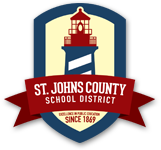http://www.fldoe.org/ese/tbi.asp
Florida Definition of TBI-
An insult to the skull, brain, or its covering, resulting from external trauma, which produces an altered state of consciousness or anatomic motor, sensory, cognitive, or behavioral deficits.
FL statue 381.745
Individuals with Disabilities Education Act definition-
A TBI is an acquired injury to the brain caused be an external physical force, resulting in total or partial functional disability or psychosocial impairment or both, that adversely affects a child’s educational performance.
More than one million children receive brain injuries each year. More than 30,000 of these children have lifelong disabilities as a result of the brain injury.
The signs of brain injury can be very different depending on where the injury occurred, and the severity of the event.
Communication and cooperation between parents and teachers are key ingredients in furthering the progress of students with a TBI. The re-adjustment process and the ultimate success of the injured student in school and in the community are vital for future achievement and personal satisfaction. It is the responsibility of all those involved to search out every available means to further these ends.
Websites
Exceptional Education Eligibility for Students who are Physically Impaired with Traumatic Brain Injury Rule:https://www.flrules.org/gateway/RuleNo.asp?ID=6A-6.030153
Dept of Education Clearinghouse Publications:http://www.fldoe.org/ese/pub-home.asp
Brain Injury Association of Florida, Inc.:https://www.braininjuryfl.org/
www.helmut.com for kids
National Dissemination Center for Childrens with Disabilities (NICHCY):[email protected]
Centre for Neuro Skills: www.neuroskills.com
Special Education Guide: www.parentpals.com
Lash & Associates Publishing: www.lapublishing.com
Teacher Information
Top 10 Classroom Technology Strategies: http://info.fldoe.org/docushare/dsweb/Get/Document-3061/K122005-80a.pdf
Contacts
Kelly McDaniel
Dept of Health, Childrens Medical Services
Brain & Spinal Cord Injury Program
850-245-4444
[email protected]
Department of Education
Program Specialist for Students with TBI
Elise Lynch
[email protected]
Tips for Parent
Work with the medical team to understand your child’s injury and treatment plan. Don’t be shy about asking questions. Tell them what you know or think.
Keep track of your child’s treatment. Write down any of the information that doctors, nurses, therapists, and others have to share.
Talk to other parents whose children have TBI. There are parent groups all around the state.
Keep in touch with your child’s teacher. Tell the teacher about how your child is doing at home. Ask how your child is doing in school.
Tips for Teachers
Find out as much as you can about the child’s injury and his/her present needs.
Give the student more time to finish tests and schoolwork.
Give directions one step at a time. For multi-step tasks, write the directions down.
Show the student how to perform new tasks. Find examples to go with new ideas and concepts.
Have consistent routines. This helps the student know what to expect. If the routine is going to change, let the student know ahead of time.
Check to make sure that the student has actually learned the new skill. Give the student lots of opportunities to practice the new skill.
Show the student how to use an assignment book and a daily schedule. This helps the student get organized.
Realize that the student may get tired quickly. Let the student rest as needed.
Reduce distractions.
Keep in touch with the student’s parents. Share the information about how the student is doing at home and at school.
Be flexible about expectations. Be patient. Maximize the student’s chance for success.
Understand that as a student grows, there may be new problems that develop. The damage to the brain from an earlier injury can make it hard for the student to learn new skills that come with getting older.
Student Checklist
When a student re-enters school the challenge is for the teacher to recognize the extent of academic and social problems before school failure damages the student’s confidence. Seen individually, the student’s errors may look just like the errors other children make. It is the pattern of errors that is distinctive. To assess this pattern, the teacher can complete a checklist to identify the problem behaviors.
Speech & Communication
Uneven cadence of speech
Reduced breath control
Dramatic softness/loudness of voice (difficulty modulating volume)
Slurred speech
Unusual tones of speech
Impaired ability to interpret sounds
Way of expressing self is confusing (not sure what he/she is trying to say)
Starts to talk before figuring out what to say
Talks excessively, utterances are too long, monopolizes or goes off on tangents
Verbal & Written Comprehension
Unable to extract meaning from words and sentences
Unable to read nonverbal communications
Confused by lecture format
Misunderstands verbal instructions
Makes errors when given verbal instructions
Organization
Diminished awareness
Lack of awareness when activities are changed
Difficulty moving between classes
Not in seat for start of class
Materials are not out and ready
Needs to have assignments repeated does not attempt to write down assignments
Assignments not turned in on time
Needs special cueing to turn assignments in on time
Homework not submitted
Excuse for not turning in homework
Unable to take notes
Fails to complete in-class assignments
Puts papers in wrong sections of notebook
Leaves personal belongings in the classroom
Late in leaving the class
Information Processing
Disorganization of thought
Leaving things behind
Losing one’s way
Decision-making is slow
Excessive asking for teacher’s guidance, directions, and approval
Working very slowly
Behavior
Talks out of turn or at inappropriate times
Violates classroom rules
Out-of-control behavior
Emotional outbursts
Stands up or leaves desk or room at inappropriate times
Off-task behavior during reading or testing
Passive and unresponsive
Shows excess emotions
Depression
Loss of friends
Argumentative with teacher
Argumentative with peers
Uncooperative
Disobedient
Name calling
Refuses to attempt tasks or makes only half-hearted attempt
Withdrawn from peers/isolated
Physical
Impaired balance and coordination
Sloppy writing
Fatigues easily
Headaches
Academic
Retains less content than peers
Requires more time to learn
Needs cues to recall information
Exhibits difficulty comprehending information he/she knew previously
Has difficulty completing tasks
Exhibits difficulty copying from the chalkboard
Has difficulty finding way around the school


